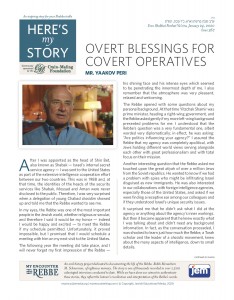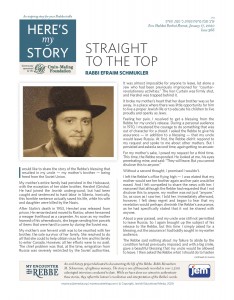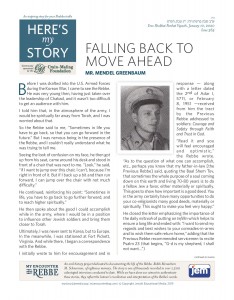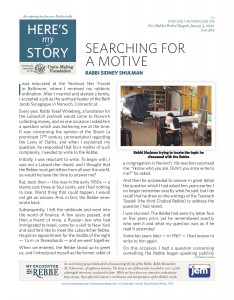Overt Blessings for Covert Operatives
After I was appointed as the head of Shin Bet, also known as Shabak – Israel’s internal secret service agency – I was sent to the United States as part of the extensive intelligence cooperation effort between our two countries. This was in 1988 and, at that time, the identities of the heads of the security services like Shabak, Mossad and Aman were never disclosed to the public. Therefore, I was very surprised when a delegation of young Chabad chasidim showed up and told me that the Rebbe wanted to see me.
In my eyes, the Rebbe was one of the most important people in the Jewish world, whether religious or secular, and therefore I said it would be my honor – indeed I would be happy and excited – to meet the Rebbe if my schedule permitted. Unfortunately, it proved impossible, but I promised that I would schedule a meeting with him on my next visit to the United States.
The following year the meeting did take place, and I will never forget my first impression of the Rebbe – his shining face and his intense eyes which seemed to be penetrating the innermost depth of me. I also remember that the atmosphere was very pleasant, relaxed and welcoming.
The Rebbe opened with some questions about my personal background. At that time Yitzchak Shamir was prime minister, heading a right-wing government, and the Rebbe asked gently if my more left-wing background presented problems for me. I understood that the Rebbe’s question was a very fundamental one, albeit worded very diplomatically; in effect, he was asking: “Are politics influencing your agency?” I assured the Rebbe that my agency was completely apolitical, with Jews holding different world views serving alongside each other with great professionalism and with total focus on their mission.
Another interesting question that the Rebbe asked me touched upon the great aliyah of over a million Jews from the Soviet republics. He wanted to know if we had a problem with spies who might be infiltrating Israel disguised as new immigrants. He was also interested in our collaborations with foreign intelligence agencies, especially those of the United States, and asked if we were finding a receptive ear among our colleagues and if they understood Israel’s unique security issues. (more…)








